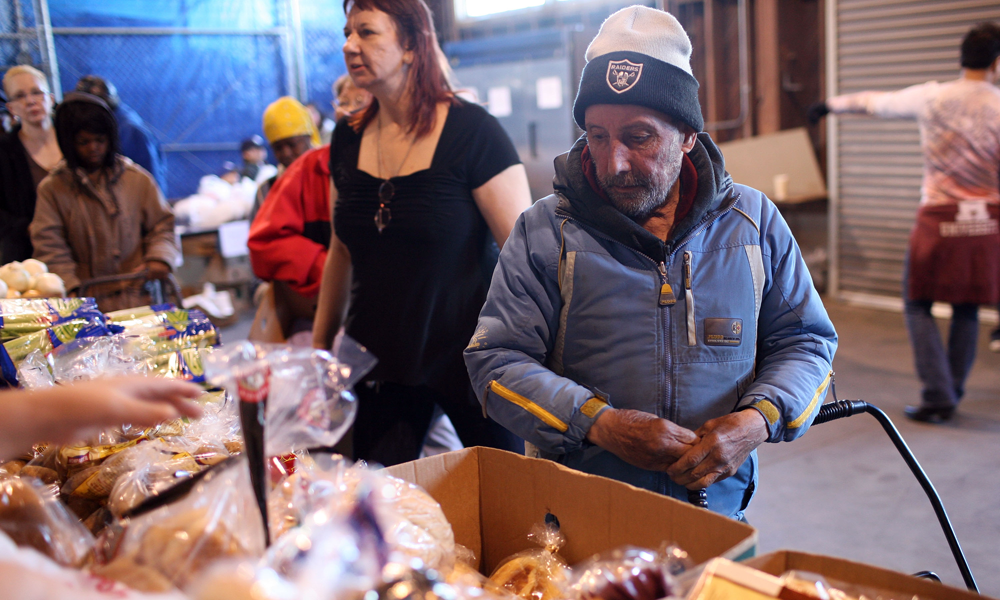
Report: More Cities Restricting Homeless Food-Sharing Programs
Increasingly, cities around the country are restricting where and how charitable groups can distribute food to the homeless. The National Coalition for the Homeless is fighting that trend and offering alternative solutions.
Imagine what it would be like if the mission of your organization were threatened by laws and regulations that made it difficult for you to do your job. That’s essentially the situation faced by the National Coalition for the Homeless (NCH) and similar organizations whose goal is to provide assistance to and advocate on the behalf of the estimated 3.5 million homeless Americans.
Lawmakers believe that if they simply restrict the sharing of food with the homeless that the population will simply leave and everything will be OK. That’s just not the case.
An NCH report [PDF] released last week found that, since January 2013, 31 U.S. cities have either introduced or passed legislation aimed at restricting the operations of food-sharing programs—a 47 percent increase since the coalition’s last report in 2010. These programs, which usually deliver food in local parks and out in the open, can assist hundreds of homeless people at a time.
Officials supporting the measures say said the restrictions are needed to protect public health and safety. But advocates for the homeless see another motive.
“There’s an effort in downtown America to make homelessness less visible,” said Michael Stoops, director of community organizing at NCH and the report’s editor. “Cities had grown frustrated. They were supporting local shelters, but it seemed like homelessness was increasing; tourists and businesses were complaining, and so cities started to pass these ordinances targeted at the homeless population.”
The most recent example is Fort Lauderdale, Florida, where the city’s commissioners last week passed a measure requiring feeding sites to be more than 500 feet away from each other, at least 500 feet away from residential properties, and with only one site allowed per city block.
“Lawmakers believe that if they simply restrict the sharing of food with the homeless that the population will simply leave and everything will be OK,” said Stoops. “That’s just not the case. Those laws aren’t going to stop homelessness, it’s simply going to cause more havoc in the lives of individuals.”
For its part, NCH has been working with other organizations to lobby at the local and federal levels on behalf of the homeless population. Stoops said the group thinks of itself as the NAACP or Children’s Defense Fund for the homeless community. “We litigate, we lobby, we organize, we register people to vote, and we educate the public. Even though we’re based in Washington, DC, our fingertips are throughout the country,” he said.
And they’ve had some success at getting some cities to back off on food-sharing restrictions.
“There was a successful lawsuit in Dallas recently, in which our side won,” said Stoops. “And in Orlando about four or five years ago, we won a suit at the local level but lost on appeal in the federal courts, but even then, the message was heard and a compromise was made between the city and the advocates, so food sharing continues in downtown Orlando.”
Stoops, in listening to local businesses, public officials, and the public, believes there’s a better way to go about dealing with the food-sharing issue that doesn’t involve imposing restrictions: Indoor meal programs.
“If a city could find a way to do that and have it be open three times a day, seven days a week, it would reduce the visibility of homelessness, which is what they want,” he said. “But you can’t just ignore them. We still need to share food with and provide a little bit of comfort to people who are in need.”
(Justin Sullivan/ThinkStock)






Comments